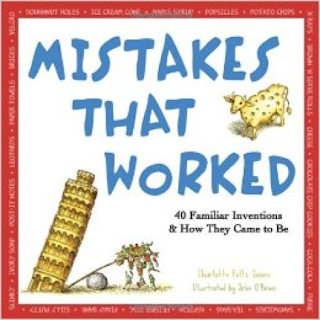It’s that time of year again! Kids are organizing their school supplies,
anxiously awaiting registration to see which of their friends are in their
class, and soaking up every last bit of summer.
Teachers are setting up their classrooms, making sure everything is just
right and possibly experiencing first day of school nightmares. We all have had moments of panic, thinking
about losing your entire class, or walking into the class from Black Lagoon. But,
even with all of these things going on let’s not lose perspective about what is
really important…THE STUDENTS!! We as
educators all want every single student in our classroom to be and feel
successful everyday. However, with
success comes active struggle and with active struggle comes mistakes. I mean, we are all human. We are not by any
means perfect and it is unfair of anyone to hold that unrealistic expectation
for our students.
Throughout much of my education, I
was always under the impression that making mistakes was unacceptable. If I just followed directions and did what I
was told, then I wouldn’t make mistakes.
Mistakes were unacceptable! So
naturally as I became an educator I didn’t want to make mistakes and because of
this I didn’t want my students to make mistakes either. If they did, then I would be considered a
“Bad Teacher”. I obviously wasn’t doing
my job if my students were constantly making mistakes.
However, after a few years of
teaching I was enlightened about “mistake making” and how important it is for
our own personal growth and development.
I was taught that mistakes were inevitable and even necessary for our
own personal growth and development.
After hearing this from my instructional specialist, I was
intrigued. I thought, well if mistakes are necessary then I am
doing okay as a human being and more importantly as a teacher. It helped me to start to change my
perspective as an educator. Of course if
didn’t happen overnight. In fact I am still learning about mistakes - as I continuously
make mistakes! Now this doesn’t mean
that we allow students to go crazy, disengage, and run wild. This means, though, that we need to embrace
mistakes and take the time to discuss how to find and fix them. Mistakes are our way of learning and problem
solving. So if students came to an
incorrect answer during a Number Talk it was okay, especially if they were able
to find their mistake and learn from it.
After doing some research I have
found that people relate making mistakes to brain growth. According to Jo Boaler and recent
neurological research on the brain, making
mistakes is hugely important as it tells us that making a mistake is a very
good thing. Mistakes are not only opportunities for learning, as students
consider the mistakes, but also times when our brains grow. Understanding the
power of mistakes is critical, as children and adults everywhere often feel
terrible when they make a mistake in math. They think it means they are not a
math person, because they have been brought up in a performance culture (Boaler,
2014) in which mistakes are not valued—or worse, they are punished.
Since embracing
mistake making and sharing this newly learned information with my students, I have
found that my students seem more confident to share their thinking with their
peers and are more willing to take risks.
They encourage each other to try new things and embrace their mistakes
and the mistakes of their peers by telling them, “Your brain just grew!”
Let’s keep all of
this in mind when entering the classroom for yet another school year keep an
open-mind about mistake making.
Great Read-Alouds Classroom
Extra Resources





How to make money from online gambling without a bank
ReplyDeleteWhen you use febcasino your debit card, you can use it to 1xbet korean fund your bankroll. You can use it to withdraw money, to fund any account or account. หาเงินออนไลน์